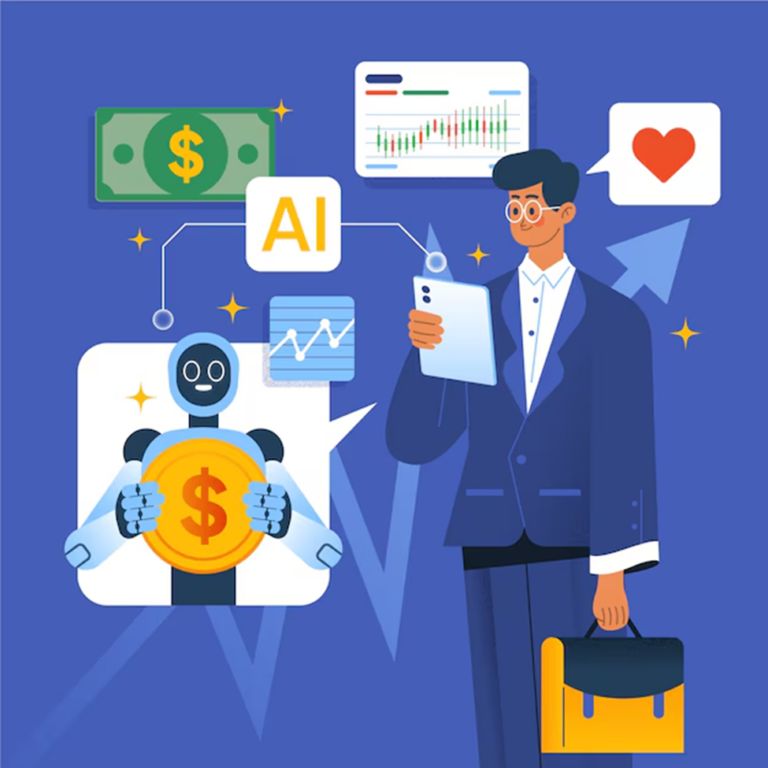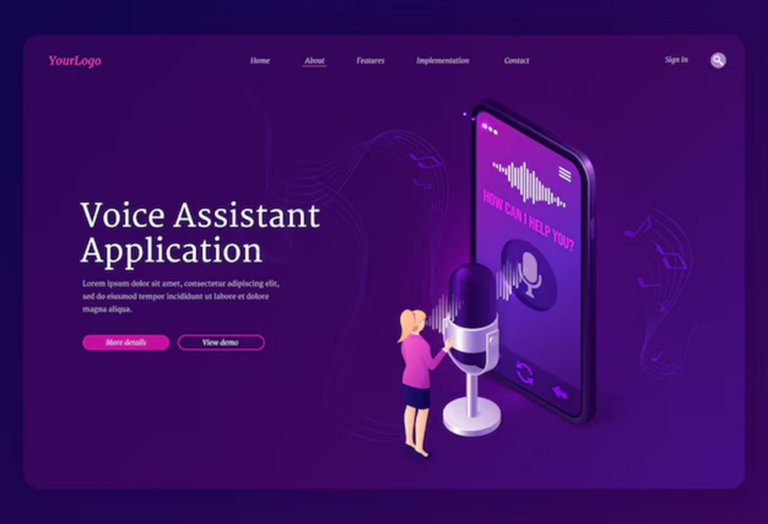AI Tools for Smarter Decision-Making
This guide explores the best AI tools for smarter decision-making and how they can improve efficiency and accuracy. AI tools have revolutionized decision-making by providing data-driven insights, automating complex analysis, and minimizing human bias. Whether in business, finance, healthcare, or everyday choices, AI-powered tools help individuals and organizations make better-informed decisions.
Introduction
In a world where every decision can have significant consequences, having the right tools to analyze data and predict outcomes is essential. Artificial intelligence has transformed decision-making by providing real-time insights, processing vast amounts of information, and eliminating biases that often cloud human judgment. AI-powered decision-making tools are now widely used across industries, including business, finance, healthcare, and marketing, helping individuals and organizations make well-informed choices.
AI tools use machine learning, natural language processing, and predictive analytics to assess risks, identify patterns, and generate recommendations. These tools save time and enhance accuracy by eliminating the uncertainty that comes with manual analysis. Whether a business decides on market trends, a doctor diagnoses a condition, or an investor evaluates stocks, AI provides valuable insights that improve decision-making. This article explores some of the most effective AI tools that can help in making smarter, data-driven decisions in different fields.
How AI Improves Decision-Making

AI enhances decision-making by analyzing large datasets, identifying patterns, and making highly accurate predictions. Unlike human decision-making, which can be influenced by emotions, personal biases, and limited information, AI provides objective insights based on data and logic.
One of AI’s key advantages in decision-making is its ability to process vast amounts of information in a short time. Humans can only analyze so much data before they become overwhelmed, but AI can examine thousands of variables simultaneously and present the most relevant insights. This allows businesses to react quickly to market changes, investors to make better financial decisions, and medical professionals to diagnose diseases more accurately.
AI-powered tools also use predictive analytics to forecast future outcomes based on historical data. This is particularly useful in industries like finance and sales, where forecasting trends can make the difference between profit and loss. AI models assess past performance, economic indicators, and external factors to predict outcomes with high precision. These predictive capabilities help businesses optimize their strategies and improve overall efficiency.
Another way AI improves decision-making is by minimizing human bias. While humans often make decisions based on emotions, social influences, or cognitive biases, AI relies on statistical analysis and objective reasoning. This leads to fairer, more accurate decision-making in fields such as hiring, medical diagnosis, and legal judgments.
With its ability to process data, predict outcomes, and reduce bias, AI has become an essential tool for decision-making in both professional and personal settings.
AI Tools for Business Decision Making

IBM Watson – AI-Powered Business Intelligence
IBM Watson is one of the most advanced AI-driven business intelligence tools available today. It uses natural language processing and machine learning to analyze business data and provide actionable insights. Organizations use Watson to identify patterns in consumer behaviour, predict market trends, and optimize operations.
Watson can process structured and unstructured data, making it useful for industries that rely on large datasets, such as finance, healthcare, and marketing. Businesses use Watson to automate customer service, improve decision-making in risk assessment, and streamline supply chain management.
Tableau – AI-Driven Data Visualization
Tableau is a powerful AI-driven data visualization tool that helps businesses understand complex datasets through interactive dashboards and charts. By using machine learning, Tableau can detect trends, highlight patterns, and make data easier to interpret.
This tool is widely used in business analytics, financial planning, and sales forecasting. With its AI-powered predictive capabilities, Tableau allows businesses to anticipate customer behaviour and adjust strategies accordingly.
MonkeyLearn – AI Text Analysis for Better Insights
MonkeyLearn is an AI-powered text analysis tool that extracts insights from customer feedback, surveys, and social media interactions. It helps businesses understand public sentiment and improve decision-making in areas such as marketing and product development.
MonkeyLearn uses machine learning algorithms to categorize text, detect emotions, and identify trends. Companies use it to analyze customer sentiment, track brand reputation, and optimize their content strategies based on AI-generated insights.
AI Tools for Financial Decision Making

AlphaSense – AI for Market and Investment Research
AlphaSense is a financial AI tool that helps investors, analysts, and businesses make informed investment decisions. It scans thousands of financial documents, news articles, and market reports to identify key insights and trends.
By using AI-driven search capabilities, AlphaSense filters through massive amounts of financial data and provides relevant information for investment strategies. It helps financial professionals assess risks, detect market shifts, and identify profitable opportunities.
Kavout – AI Stock Market Prediction
Kavout is an AI-powered stock analysis platform that provides predictive insights into financial markets. Using deep learning and machine learning algorithms, it evaluates stock performance and ranks investment opportunities based on historical data.
Kavout’s proprietary Kai Score analyzes financial indicators, earnings reports, and market conditions to help traders and investors make data-driven decisions. By reducing uncertainty and providing reliable stock predictions, Kavout enhances investment strategies for both novice and experienced traders.
ZestFinance – AI Credit Risk Assessment
ZestFinance is an AI tool that helps financial institutions assess credit risk and make smarter lending decisions. By using machine learning models, it evaluates borrower profiles, detects fraud, and predicts repayment behaviour.
This AI tool improves the accuracy of credit scoring, allowing lenders to offer loans to more customers while minimizing risk. ZestFinance also helps banks and credit unions streamline their loan approval processes with AI-driven insights.
AI Tools for Healthcare Decision-Making
PathAI – AI for Medical Diagnosis
PathAI is an advanced AI tool that helps pathologists diagnose diseases with greater accuracy. By analyzing medical images, PathAI detects patterns in tissue samples and assists doctors in making faster and more precise diagnoses.
This tool is widely used in cancer detection and pathology research. By reducing human error and improving diagnostic accuracy, PathAI enhances the efficiency of medical professionals and improves patient outcomes.
IBM Watson Health – AI for Medical Research
IBM Watson Health uses AI to analyze medical literature, patient records, and clinical trials. It provides doctors with evidence-based recommendations for treatment plans and helps researchers identify potential drug discoveries.
Hospitals and pharmaceutical companies use Watson Health to optimize patient care, accelerate drug development, and enhance medical research with AI-powered insights.
Buoy Health – AI Symptom Checker for Patients
Buoy Health is an AI-powered chatbot that helps patients assess their symptoms and receive medical guidance. By analyzing symptoms, medical history, and risk factors, Buoy Health provides users with recommendations for seeking medical care.
This AI tool helps individuals make informed decisions about their health while reducing unnecessary doctor visits. It serves as an early diagnostic assistant, providing medical insights based on AI-driven analysis.
AI Tools for Everyday Decision-Making

Google Assistant – AI for Personal Productivity
Google Assistant helps users manage schedules, set reminders, and retrieve information quickly. It assists with daily decision-making by providing weather updates, calendar notifications, and smart home automation.
By analyzing user preferences, Google Assistant offers personalized suggestions for tasks such as meal planning, shopping, and travel arrangements. It enhances everyday decision-making with real-time insights.
Otter.ai – AI for Meeting Transcription and Analysis
Otter.ai is an AI-powered transcription tool that helps professionals and students convert spoken conversations into written text. It records meetings, highlights key points, and generates summaries for better decision-making.
Otter.ai is widely used for business meetings, interviews, and academic research. It ensures that important details are captured and organized efficiently.
Replika – AI for Emotional Well-Being
Replika is an AI chatbot designed to provide emotional support and improve mental well-being. It engages users in meaningful conversations and offers personalized advice based on their mood and preferences.
Replika helps users make better emotional and psychological decisions by providing a safe space for self-reflection and mental health support.
Conclusion
AI tools have significantly improved decision-making by providing accurate data analysis, predictive insights, and automation capabilities. Whether in business, finance, healthcare, or personal productivity, AI-powered tools help individuals and organizations make smarter choices.
By integrating AI into decision-making processes, users can reduce uncertainty, improve efficiency, and gain deeper insights into their data. As AI continues to advance, these tools will become even more powerful, shaping the future of decision-making across various industries.







